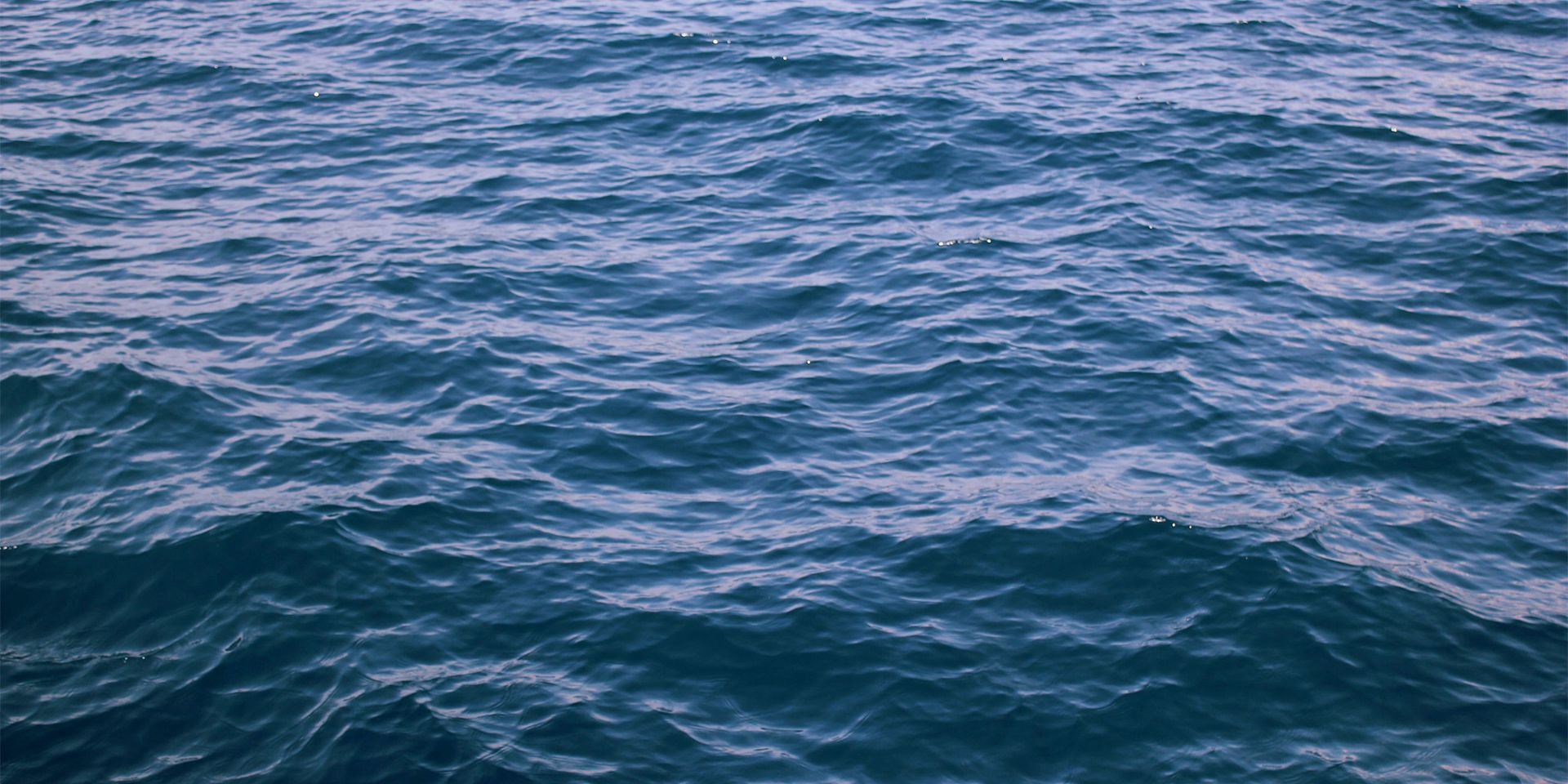Marine Mammal Co-Management Review in Alaska
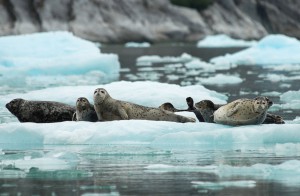
Harbor seals on ice. (NOAA Fisheries)
In 2017, the Marine Mammal Commission received a grant award from the North Pacific Research Board to identify essential components and key impediments to effective co-management of marine mammals in Alaska. The overall goal of this project is to strengthen co-management relationships and support co-management to improve the conservation of marine mammals in a region where they are of critical ecological, social, and nutritional importance.
Check out the final report for the Co-management of Marine Mammals in Alaska: A Case Study-Based Review
Project Summary
Co-management of Alaska marine mammals is a key provision of the Marine Mammal Protection Act (MMPA). Under the authority of Section 119 of the MMPA, the U.S. Fish and Wildlife Service (FWS) and the National Marine Fisheries Service (NMFS) can enter into cooperative agreements with Alaska Native organizations (ANOs) to manage marine mammals harvested by Alaska Natives for subsistence and cultural purposes.
Project Objectives
- Develop a working definition of co-management.
- Identify important characteristics of, and major impediments to, effective co-management through:
- a review of selected co-management and cooperative agreements, and
- discussions with federal agency and Alaska Native co-management partners and community members.
- Provide recommendations for improving co-management relationships that account for the constraints on available resources, including funding.
Project Timeline
January 2018 – July 2019
Steering Committee Members (from left to right in photo)
Jon Kurland: NMFS Alaska Regional Office
Vera Metcalf: Eskimo Walrus Commission
Billy Adams: Ice Seal Committee
Lauren Divine: Aleut Community of St. Paul Island
Jennafer Malek: Marine Mammal Commission
Vicki Cornish: Marine Mammal Commission
Taqulik Hepa: North Slope Borough Department of Wildlife Management
Patrick Lemons: Marine Mammals Management, FWS Alaska Region
Peggy Osterback (not pictured): Aleut Marine Mammal Commission
Of the cooperative agreements established between ANOs and agencies, upon which co-management relationships are built, some have been more effective than others. A preliminary analysis suggests that the most effective agreements are those that emphasize strong communication between partners, agreement on information to be used in management decisions (stock assessments, harvest data, indigenous knowledge), and measures to resolve conflicts.
To achieve the project objectives, we assembled a Steering Committee comprised of Alaska Natives and federal resource managers from NMFS and FWS to guide the project and provide advice on engagement of co-management partners and community members.
In March 2018, we worked with the Steering Committee to draft a working definition of co-management for the purpose of the project. Our working definition of co-management is: “A partnership based on trust and respect, established between an Alaska Native Organization, as defined by the MMPA, and either NMFS or FWS, with shared responsibilities for the conservation of marine mammals and their sustainable subsistence use by Alaska Natives.”
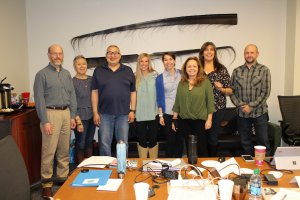
Co-management review Steering Committee (missing from photo: Peggy Osterback)
The Steering Committee also identified three ANOs/cooperative agreementsto serve as case studies for the project: the Eskimo Walrus Commission (EWC), the Aleut Community of St. Paul Island (ACSPI), and the Aleut Marine Mammal Commission (AMMC). Recognizing that not all current ANOs could be included in the review, the selected ANOs represented a diversity of Alaska marine mammal species, geographic regions, federal partners, and participating communities.
From May to August 2018, we met with NMFS, FWS, and ANO officials. We also visited Utqiaġvik (Barrow), Gambell, Savoonga, Nome, St. Paul, Akutan, and Atka to conduct focus groups with marine mammal hunters and resource users. A total of 73 people provided responses. The Steering Committee was instrumental in identifying persons in each community that were knowledgeable and willing to share their perspectives.
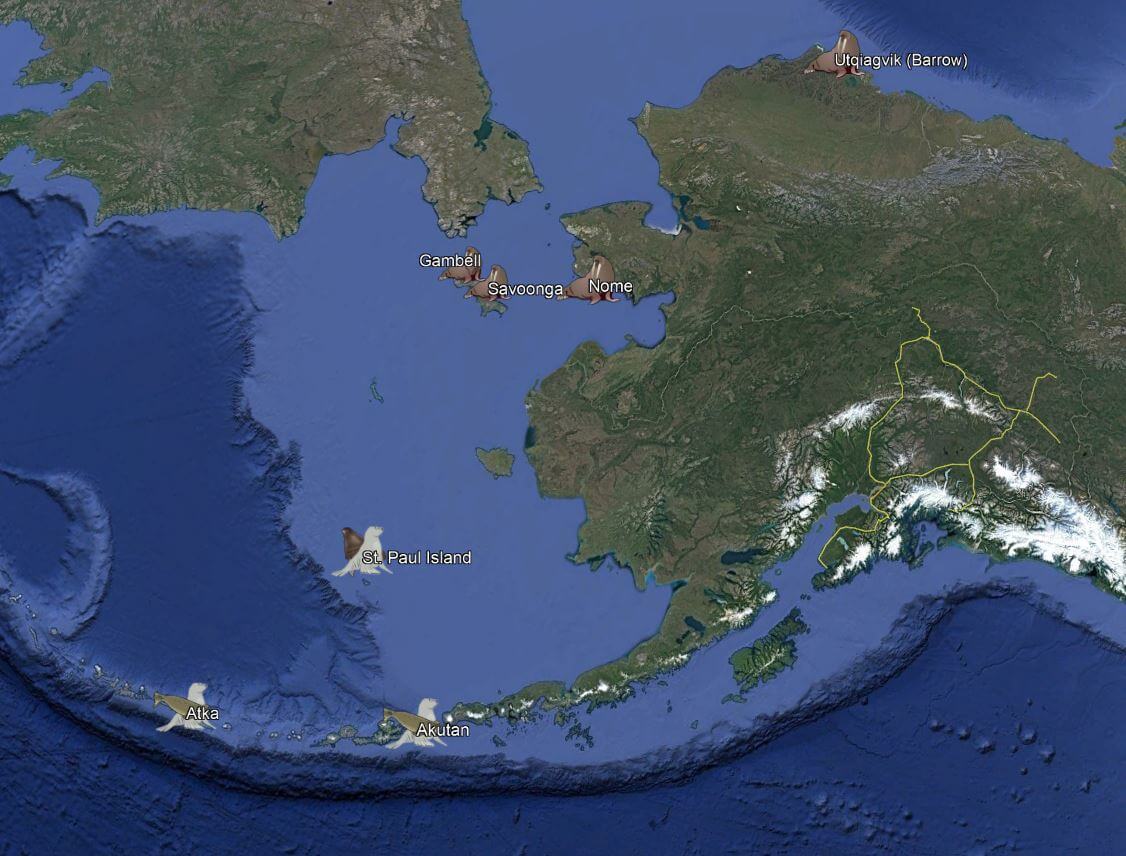
Locations of focus groups and interviews for co-management case studies.
Findings
Based on the information collected from agencies, case study ANOs, and their affiliated communities, the review yielded findings in the following seven categories:
- Key elements of co-management
- Partner roles and expectations
- Communication
- Organizational structure and accountability
- Leadership training and transitioning
- Agency practices and decision-making processes
- Challenges of subsistence hunting and harvesting and the future of co-management.
Recommendations
During interviews and focus groups, we heard that limited resources for ANOs restrict capacity for full engagement in co-management activities. We specifically geared our recommendations towards improving co-management within the constraints of available resources, including funding. While we recognize the project was based on a subset of ANOs, we worked with our Steering Committee to develop the following recommendations:
- Co-management partners should clearly define and mutually agree upon their respective roles, responsibilities, and accountability mechanisms, and be more transparent regarding partner limitations;
- Co-management partners and stakeholders should work cooperatively to strengthen communications, trust, and respect within and among partners;
- New generations of Alaska Natives should be exposed to and provided opportunities to engage in a range of co-management activities; and
- The effectiveness and efficiency of co-management (ANO) structures should be assessed and alternative structural models should be considered as appropriate.
In November 2018, we met with the Steering Committee to review the preliminary findings and recommendations and finalize the working definition of co-management. In Spring 2019, we returned to the federal agency offices and communities we visited in 2018 to share the project findings and recommendations. The final draft of the report was reviewed by the Steering Committee in April 2019 and will be made publicly available in Summer 2019.
Click here for a fact sheet that includes more details on the project findings, recommendations, and suggested action items.
Background
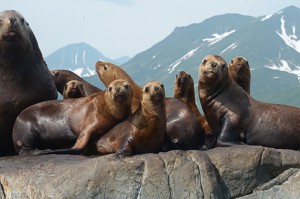
Steller sea lions range along the North Pacific Rim from northern Japan to California (NOAA’s National Marine Mammal Laboratory)
The 1994 amendments to the Marine Mammal Protection Act (MMPA) established Section 119 to enhance cooperative efforts to improve the conservation and management of marine mammals that are harvested by Alaska Natives for subsistence. Through Section 119, the U.S. Fish and Wildlife Service (FWS) and the National Marine Fisheries Service (NMFS) were encouraged to enter into cooperative agreements with Alaska Native organizations (ANOs) for the co-management of subsistence use of marine mammal species. The goal of Section 119 is to conserve marine mammals and provide co-management of marine mammals through a cooperative approach.
In 2008, the Marine Mammal Commission conducted a workshop to assess progress in co-management since the enactment of the 1994 MMPA amendments. In the time leading up to that workshop, ten cooperative agreements had been established between FWS or NMFS and ANOs, covering twelve marine mammal species. The agreements reflect a diversity of approaches to co-management: regional versus species-based, single species versus multiple species, and single tribe/village versus multiple tribes and regions. The 2008 review identified four themes critical to effective co-management of marine mammals:
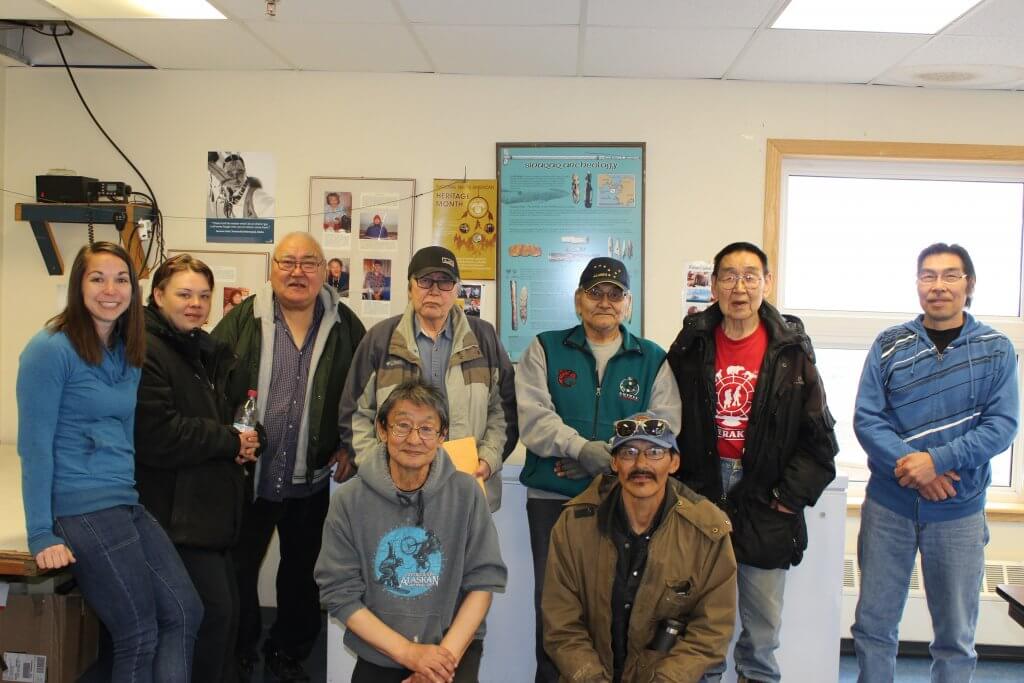
Participants from the hunter focus group in Savoonga on St. Lawrence Island (Credit: Vera Metcalf)
- trust between partners
- the need for ANO capacity building
- the need for funding and accountability, and
- the recognition that Alaska Native subsistence culture faces enormous threats from climate change.
During its 2016 listening sessions in Utqiaġvik, Kotzebue, and Nome, the Commission heard from community members that the quality of relationships between co-management partners had declined due to growing dissatisfaction with the co-management process and lack of adequate funding and other resources for implementing cooperative agreements. At a joint meeting with the IPCoMM at the end of the 2016 listening sessions, IPCoMM recommended that the Commission, in coordination with ANOs and federal agency co-management partners, facilitate a review of marine mammal co-management. This project was developed in response to that recommendation, and is being conducted with the support of IPCoMM and its ANO members.
Principal Investigators
- Lead: Dr. Jennafer Malek, Marine Mammal Commission, Co-Management Fellow
- Co-lead: Victoria Cornish, Marine Mammal Commission, Energy Policy Analyst & Alaska Native Liaison
Funding for this project is provided by the North Pacific Research Board
Project Social Media
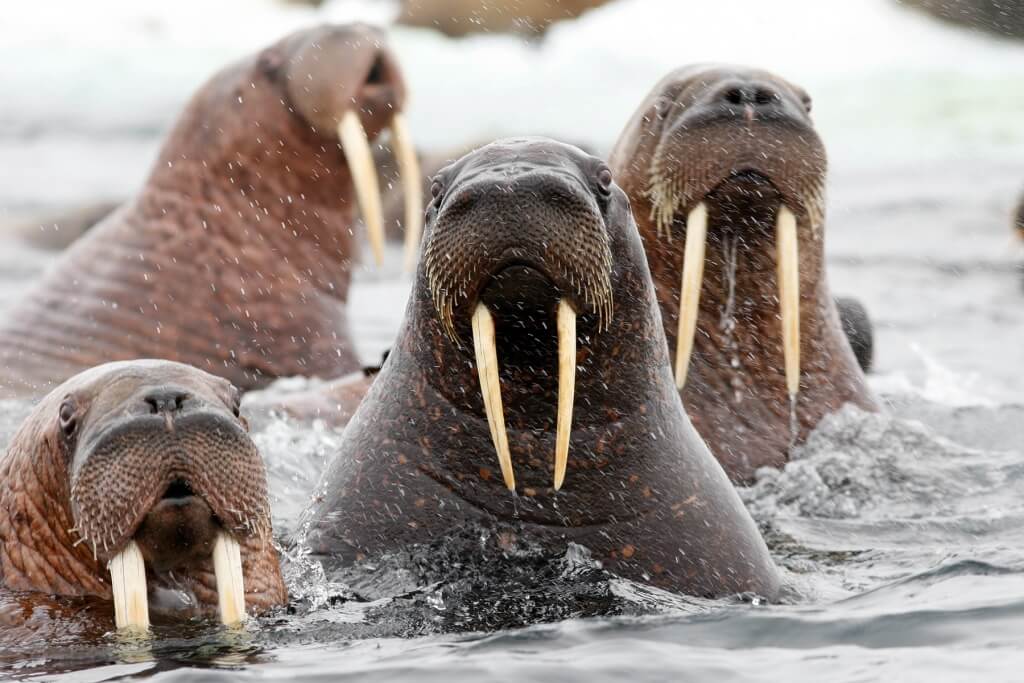
Walruses group and ‘head bob’ to investigate unknown disturbances such as predators or humans.
The Curious Walrus is the personal blog of lead Principal Investigator, Jennafer Malek. This blog highlights the progress of the co-management review project as well as her personal adventures during her time in Alaska. The project also has created a Facebook page, At the Edge of the Ice: Alaska Marine Mammal News and Updates, that shares current information about marine mammals in Alaska, from scientific findings and legislative actions to public opportunities to learn more about marine mammals.
